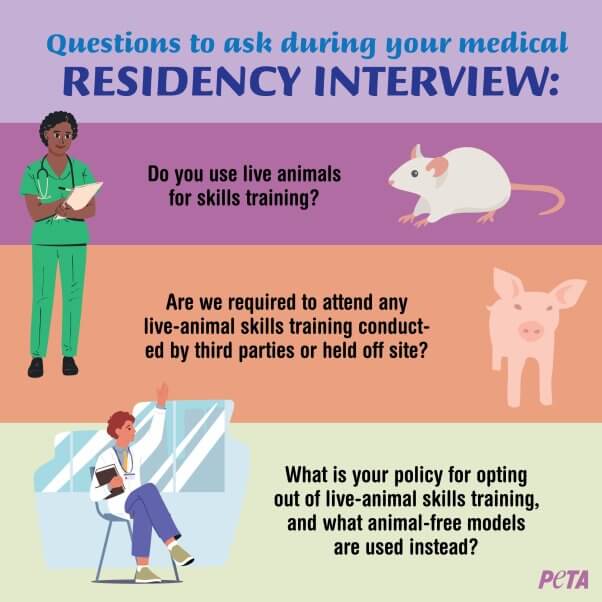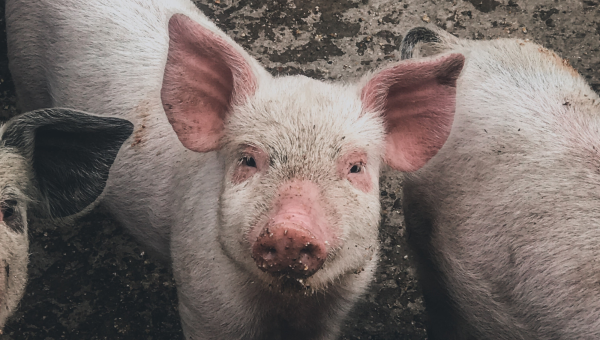PETA to Med Students: 3 Questions to Help Save Animals and Your Education
If you’re looking for a career in medicine, you’re probably eager to learn with the best training tools available. Unfortunately, not all schools’ programs are created equal, but PETA can help you find the best ones.
Some physician residency programs compel students to slice open and kill animals in a misguided attempt to learn about human health. It’s a lose-lose situation for everyone involved.
That’s why hundreds of leading medical residency programs around the U.S. now use advanced human-patient simulators and other human-relevant educational tools to train doctors and set them up for lifesaving success.
Which Programs Use Animals?
Animals are used in practice surgeries and other procedures in physician residency training programs in general surgery, neurosurgery, orthopedic surgery, ophthalmology, urology, obstetrics and gynecology (OB/GYN), and otolaryngology (head and neck surgery).
These programs may use parts of animal corpses or live animals, including pigs, rats, and mice. Programs outside the U.S. may also use dogs, cats, and sheep.
For example, in OB/GYN residency training at Oregon Health & Science University, students slice open female pigs in practice surgeries, dissect their organs, and kill any survivors. At the University of Cincinnati, general surgery residents cut open pigs’ chests, remove their organs, and kill any survivors.
To ensure that your medical residency program doesn’t use animals in any way, you can ask these three questions during your interview as a prospective student:

If it turns out that the medical residency program you’re applying for requires training on animals, there are plenty of better options to choose from.
Where to Find an Animal-Free Medical Education
A PETA survey found that 89% of responding U.S. OB/GYN physician residency training programs don’t use live animals. This includes top OB/GYN residency programs at Massachusetts General Hospital, the University of California–Los Angeles, and Texas A&M University, which teach students with modern, animal-free technology.
A Physicians Committee for Responsible Medicine survey similarly identified that 80% of responding U.S. general surgery residencies don’t use live animals. These include reputable general surgery residency programs at the Mayo Clinic College of Medicine and Science in Rochester, New York; Beth Israel Deaconess Medical Center in Boston; and Cleveland Clinic in Ohio, which use superior, human-relevant, non-animal methods.
Human-Relevant Training Benefits Everyone
Other animals can’t begin to accurately mimic complex human anatomy, and doctors who train on them may not be prepared to help their patients. Period.

Questioning medical residency programs on their use of live animals weeds out any doubts about the quality of training you can expect to receive. By advocating for animal-free, human-relevant training methods, you can take control of your education and ensure that you acquire the most applicable skills on models with the correct anatomy for treating future patients effectively.
Your voice of reason could also help encourage schools to use non-animal methods if they aren’t already.
What You Can Do
Even if you aren’t graduating from medical school and heading into a physician residency program, you can still help modernize medical training and save animals from pointless mutilations.
PETA’s ongoing survey identified 15 OB/GYN residency programs that use live animals for training. Please TAKE ACTION by e-mailing these programs and urging them to stop using live animals and switch to modern human simulators and other advanced technologies instead:


